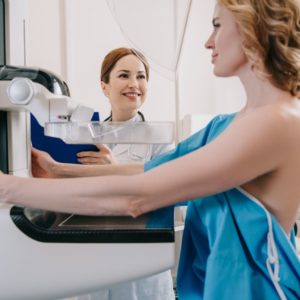
What is a mammogram?
A mammogram is a special type of imaging system used to look into the tissues of the breast to find early signs of breast cancer. Early detection of breast cancer increases one’s chances of having the best possible outcome when diagnosed and treated before it spreads.
Do mammograms expose me to radiation?
Just like x-rays, mammograms use radiation to create images of the breasts. If you are concerned about radiation exposure, it is important that you talk to Dr. Craig Ranch before having your mammogram screening completed.
When should a woman have a mammogram screening?
It is recommended that women start having annual mammogram screenings around the age of 35-40. Some women might benefit from routine mammograms earlier, especially if they have a family history of breast cancer or if there is a lump in the breast that needs to be further evaluated.
Is a mammogram painful?
Because the breasts are placed between two plates to get the right images, mammograms can be uncomfortable for many women. However, it is a few moments of discomfort that could potentially save your life, and is a highly recommended screening for most women as they age.
Will early detection improve my chances of survival if breast cancer is found?
Yes! As with other conditions that patients screen for, early detection of breast cancer can mean a more positive outcome for individuals when they seek treatment as soon as possible.
Are you in need of a mammogram screening?
Contact Dr. Craig Ranch of McKinney, TX today to request a consultation visit with our team and take a proactive approach to breast cancer! Call (214) 544-6600 and visit at 7900 Henneman Way, Suite #100 to find out more. Our facility is open to new patients, as well as our existing ones, and encourages women to understand the importance of preventive care.
